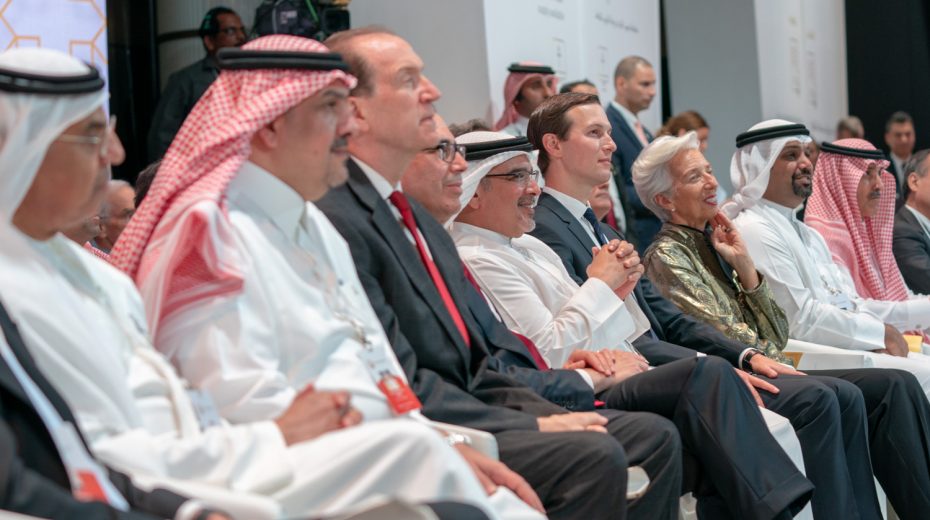Foreign Minister Israel Katz just returned from a visit to Abu Dhabi, where he participated in a conference on climate change hosted by the United Nations Environment Program. It was the first visit by a senior Israeli official to an Arab country since last month’s Bahrain gathering to discuss US President Donald Trump’s “Deal of the Century.”
Over the past year, visits by Israeli government ministers to Gulf states have become increasingly routine. Minister of Culture and Sport Miri Regev visited the city recently. And Minister of Communications Ayoub Kara participated in working meetings in Dubai.
This phenomenon marks an end of the years of secret relationships with Arab states that long ago realized Israel wasn’t their enemy, but were afraid to say so openly. It is a movement from darkness to light. Today, these relations are conducted right out in the open between representatives of the State of Israel and our Arab neighbors, especially the Gulf states that feel equally threatened by Iran’s regional ambitions.
It all began last year, when Israeli delegations visited Qatar and Abu Dhabi. Soon after, Prime Minister Benjamin Netanyahu made a historic visit to Oman, where he was publicly embraced by Sultan Qaboos bin Said al Said. The US-led Middle East peace conference in Warsaw in February of this year further revealed the common interests that exist between Israel and the Gulf states, in particular facing down a common Iranian foe. Last week’s Bahrain gathering and Katz’s visit this week to Abu Dhabi indicate that the Gulf is serious about normalizing relations with Israel, albeit gradually.
At a security conference in Herzliya earlier this week, Mossad chief Yossi Cohen said that there are many more Arab states ready to normalize with Israel, but with which relations at present remain more clandestine. Oman, however, is just about ready to allow the establishment of official Israeli representation within its borders, according to Cohen.
Cohen also took the opportunity to remind the Arabs of the Iranian threat, stating that recent attacks on oil tankers in the Persian Gulf were carried out by Iran and its terrorist proxies. The Mossad chief warned that Iran is sending a message that if US-imposed sanctions are not lifted, it will do everything in its power to disrupt the global oil economy. In other words, Tehran is ready and willing to fan the flames of a region that is already burning.
For the head of the Mossad to make such remarks publicly is certainly not routine. His appearance was a direct message to the Arab states that Israel stand with them against a common threat, and that the time has come to start regarding one another not as enemies, but as allies.
Meanwhile, Israel’s rapprochement with the Arab states and visits to the Gulf are perceived by the Palestinians as a betrayal. The Palestinians claim that any normalization of relations will come at the expense of the Palestinian cause, and diminish the sacrifices of all Arabs who died in the many wars waged against Israel. However, it is increasingly clear that the Gulf leaders are less interested in the Palestinian cause than they are with their own security and stability, and that they realize that closer ties with Israel can help achieve those goals.
The feeling among Israelis is that this is a new era, and the atmosphere is particularly positive after the Bahrain conference, at which Bahraini Foreign Minister Khaled bin Ahmed Al Khalifa told Israeli journalists:
“Israel is a state in the Middle East and is part of the region’s heritage. The Jewish people has a place in our midst. The Israeli public must believe that there are countries in the region that want to achieve peace and that encourage the Palestinians to make peace.”
Dr. Edy Cohen is an expert on Middle East affairs who regularly appears as a special Israeli guest on regional Arabic-language media.












